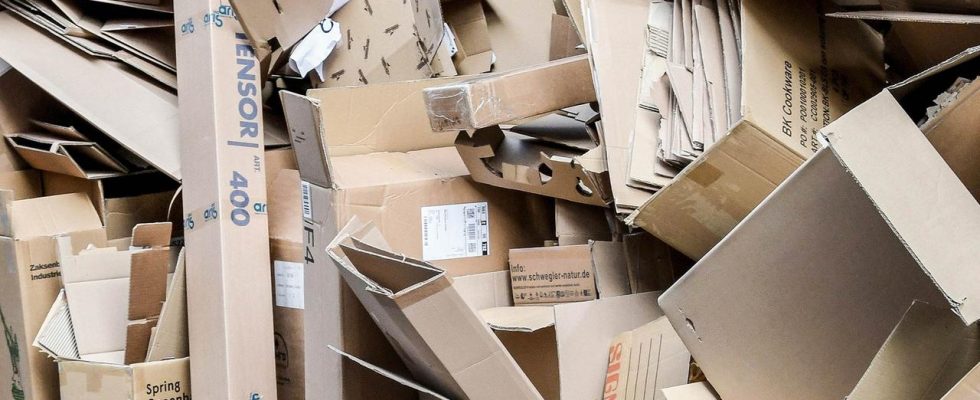Although recycling is increasing in the EU, the amount of waste generated is growing faster than actual recycling. One reason: the flourishing online trade. Can reusable packaging help with shipping?
Waste in the EU countries has increased by 20 percent within ten years – especially in the case of disposable packaging. If this continues, the amount of plastic waste would increase by almost two thirds by 2040 compared to 2018, the EU Commission calculates. She therefore wants to stop this trend: in November last year she presented a revised EU packaging regulation. Also in view: the booming online trade.
“Lots of packaging waste”
Green MEP Malte Gallée says: “In the last few years, online trade has generated vast amounts and actually more and more packaging waste. In Germany alone, in 2018, i.e. before the pandemic, there were 830,000 tons of packaging material. That is huge potential, to save that.”
According to the plans, ten percent of all shipments in online retail are to be sent in a reusable system by 2030, and ten years later already half. But to what extent are customers willing to accept a reusable system in online retail?
Tchibo has had good experiences with the reusable test
In 2020, the retail company Tchibo, together with others, tested the shipping of goods with reusable packaging. The result: 81 percent of the reusable bags were returned. A complete success, one might think.
However, other pilot projects had a lower rate. The Federal Association of E-Commerce and Mail Order Germany BEVH is also rather skeptical. “We have member companies that are already sustainable and have been offering reusable solutions for a long time,” says Eva Behling, in-house counsel at the BEVH. “And these companies have also reported to us that just 25 percent of their shipments are made in reusable boxes. This means that not all customers are willing to accept reusable packaging. In addition, not all products fit in reusable packaging,” Behling continues.
The Commission’s proposal also stipulates that the empty space between product and shipping packaging may not exceed 40 percent. Some bulky products, the BEVH criticizes, cannot be packed in standard containers in such a way that the specification can be met.
Send empty packaging through Europe?
The industry also doubts that the proposals in cross-border mail order are environmentally friendly. A case study: A Spanish customer orders an electronic device in a reusable box from a German retailer and keeps the goods. “Then she would send a completely empty reusable box with 100 percent empty space back from Spain to Germany. We doubt that, based on our current knowledge, this is the most sustainable solution,” says Behling.
Green politician Gallée, on the other hand, is convinced that the reusable system can work and that the Commission’s proposal could also handle even higher reusable quotas. A deposit system would be accepted by consumers if it was simple: “The larger and more comprehensive a deposit system is, the more likely people are to sell it. That’s why we have a response rate of 98 percent in beverage retail. Because it’s simple and the people have an incentive. That’s exactly what we need for future deposit systems everywhere,” says Gallée.
question of acceptance – and earnings for the company
However, it is not just a matter of customer acceptance, but also the number of cycles so that the system is actually sustainable, say experts. It must also be clarified who operates the deposit system, the retailers or the logistics companies, and whether it ultimately pays off for everyone involved.
The EU Parliament could vote on the proposal as early as autumn, after which negotiations with the federal states could begin. However, there is increasing opposition to strict environmental legislation in Parliament from Christian Democrats, right-wing factions and parts of the Liberals. The amendment to this law could also cause a lot of political controversy.

